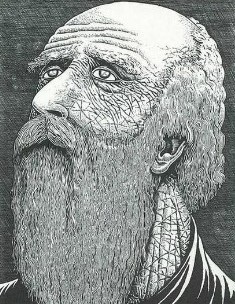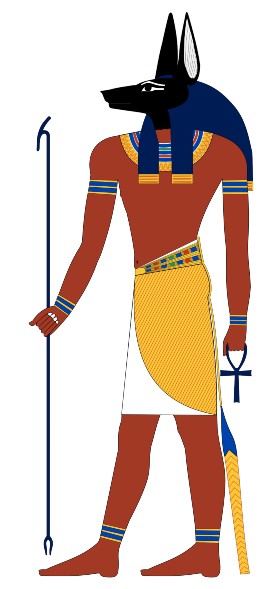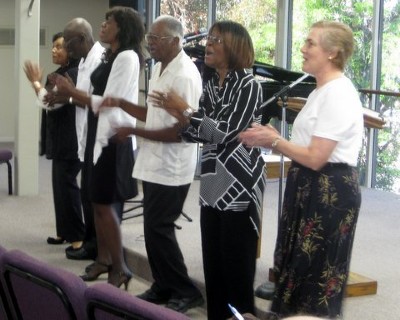‘Lifted From the Miry Bog’ With Two Hebrew Words
By Neil Earle
 Noah found grace in the eyes of the Lord. Basil Wolverton asrtwork
Noah found grace in the eyes of the Lord. Basil Wolverton asrtworkI sometimes tell our congregations how the only question I scored wrong on an Old Testament Survey Course way back in 1970 was this one: “Was Grace offered in the Old Testament?”
I wrote – NO.
I was wrong. I will always remember how the professor scribbled in the margin: “Noah found grace in the eyes of the Lord” (Genesis 6:8).
It is a common misconception – to think that the Old Testament equals Law and the New Testament equals Grace. We all fall into it from time to time.
I would never have missed that had I paid more attention to a beautiful phrase that the translator Miles Coverdale used in his version of the Old Testament back in the 1500s. He had apparently borrowed it from William Tyndale’s (1494-1536) first printed English Bible (1494-1536). It lingers today in the King James family of Bibles. The phrase is found many times, but Psalm 25:6 links them appropriately as “Remember O Lord your tender mercies and your loving-kindnesses.”
What’s In a Word?
Loving-kindness. This is not a word one encounters very often today – and what a shame! Loving-kindness is a distinctively Biblical word, and for a good reason – it comes close to summing up the very nature and character of God, the God of Israel. The word in the Hebrew is HESED and Bible commentators cannot help but wax eloquent on the beautiful thoughts it conveys. The New Bible Dictionary explains:
“Most of its occurrences are in the Psalms but it comes seven times elsewhere in the Authorized (King James) Version, which has ten other renderings, the most frequent being mercy, kindness and goodness…Its meaning may be summed up as a steadfast love on the basis of a covenant. It is employed both of God’s attitude toward his people and of theirs to him, especially in Hosea” (page 702).
 Jeremiah was sent into a deep, miry pit up to his neck. Who has not felt like this? Basil Wolverton artwork
Jeremiah was sent into a deep, miry pit up to his neck. Who has not felt like this? Basil Wolverton artworkWhat is surprising in light of many misconceptions about a stern Old Testament Jehovah and a meek and mild Jesus Christ is that important spot where God reveals his name and character to the Israelites. This is found in Exodus 34:6-7 where Moses is given a greater insight into the God of Israel by Yahweh describing himself:
“And the Lord passed before him and proclaimed, The Lord, the Lord God, merciful (from Hesed) and gracious, longsuffering and abounding in goodness and truth, keeping mercy for thousands, forgiving iniquity and transgression and sin, by no means clearing the guilty…”
So there is another of the many places where Grace is mentioned in the Old Testament. The attributes here are those believers like to think of when we think of God – merciful, gracious, longsuffering, forgiving. The Arab people preserve memory of this in their various prayers to the One God, “Allah the Merciful, the Compassionate One.”
The word can be traced all through the Law, the Prophets and the Psalms.
 An Egyptian god…NOT the God of the Bible.
An Egyptian god…NOT the God of the Bible.(Interestingly, both Rahab and Ruth are ancestors of King David and David’s greater son, the Lord Jesus Christ – see Matthew 1.) But as the advertisers say, “Wait! There’s more!”
“His Mercy Never Fails”
“Mother-Love”
Linking Rahun, the Womb, with Hesed, might make a fine and pleasant subject for meditation upon God’s character.
God does forgive us. Psalm 40 shows Psalm-writer David caught in some deperately deep trouble – he is floundering helplessly in what the New King James Bible calls a miry bog (v. 2). God did not keep him from falling in the bog, we humans are quite capable of getting into deep trouble all by ourselves, even saints like the Psalm-writers. The appeal for help is urgent but as always there is the underlying note of confidence in God’s HESED. “He put a new song in my mouth, a song of praise to our God…Blessed is the man who makes the Lord his trust…You have multiplied O Lord my God your wondrous deeds and your thoughts toward us…they are more than can be told.”
Here is praise and appreciation for God’s many deliverances in the past – in David’s case, from Goliath, from King Saul, from foreign nations, his own human nature and treacherous enemies galore!
 After the mire…later we sing.
After the mire…later we sing.“Having a Bad Day?”
Sometimes at work or on the job when people sense our downcast mood they may ask, “Having a bad day?” The people who wrote the Psalms seemed to have many of them. “For evils have compassed me beyond number,” David sang in psalm 40:12-13, “My iniquities have overtaken me, and I cannot see; they are more than the hairs of my head; my heart fails me.”
Then comes the never-failing petition: “Be pleased O Lord to deliver me! O Lord, make haste to help me! You are my Help and Deliverer, do not delay, my God” (Psalms 40:11-13, 17).
On what basis could David make these all-out urgent requests?
Not by trusting in his own righteousness. But in God’s HESED and tender mercies. “I have not concealed your Loving Kindness and your faithfulness, from the great congregation” (4:11).
David felt duty-bound to thank God always. His urgent thanksgivings prodded him to start the Book of Psalms as a thank offering to God. Where he went many followed – including every sinning believer.
“Where Sin Abounded, Grace”
Let us remember the kind of God we serve, the God of justice, of sustaining power, of action and intervention but especially of HESED and TENDER MERCIES. It’s been said of the Biblical revelation: “The wicked and the proud tremble at its warnings, but to the wounded and the penitent it has a mother’s voice. It has woven itself into our dearest dreams so that Love, Friendship, Sympathy, Devotion, Memory and Hope put on the beautiful garments of its treasured speech. No man is poor or desolate who has this treasure for his own.”
There’s a word for all those tender motherly qualities of God that keep chasing through the Bible. By now we know what it is – it is Loving Kindness – HESED. Lets treasure it always.
Let’s learn all over again to appreciate the loving-kindnesses of God, the One who, as Jesus taught, is kind even to us, the ever unthankful and the evil (Luke 6:35).